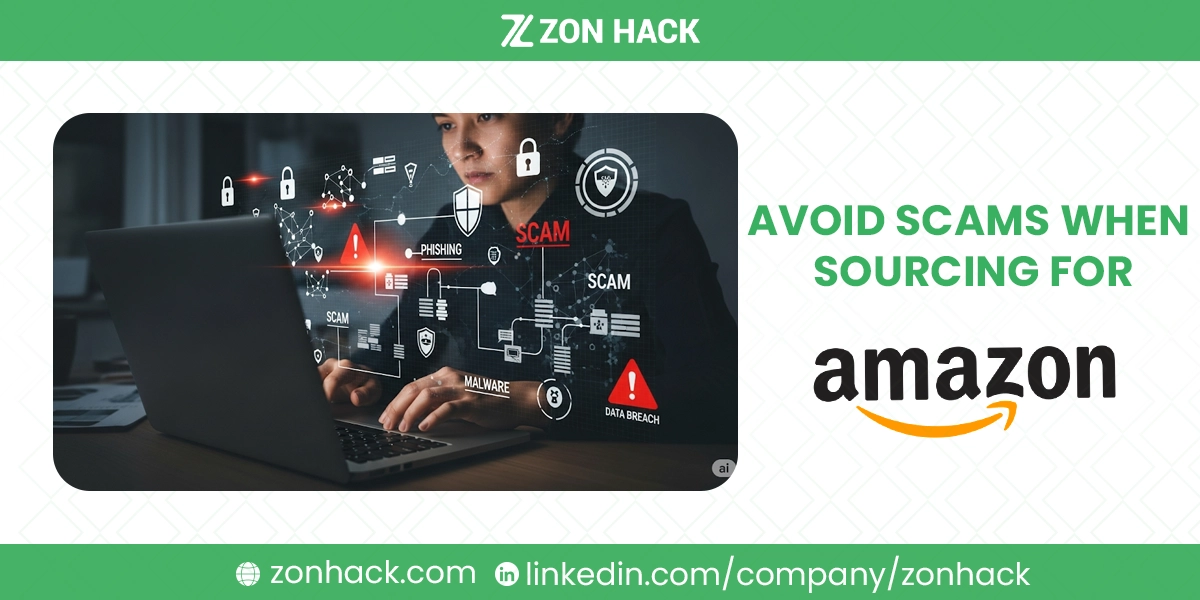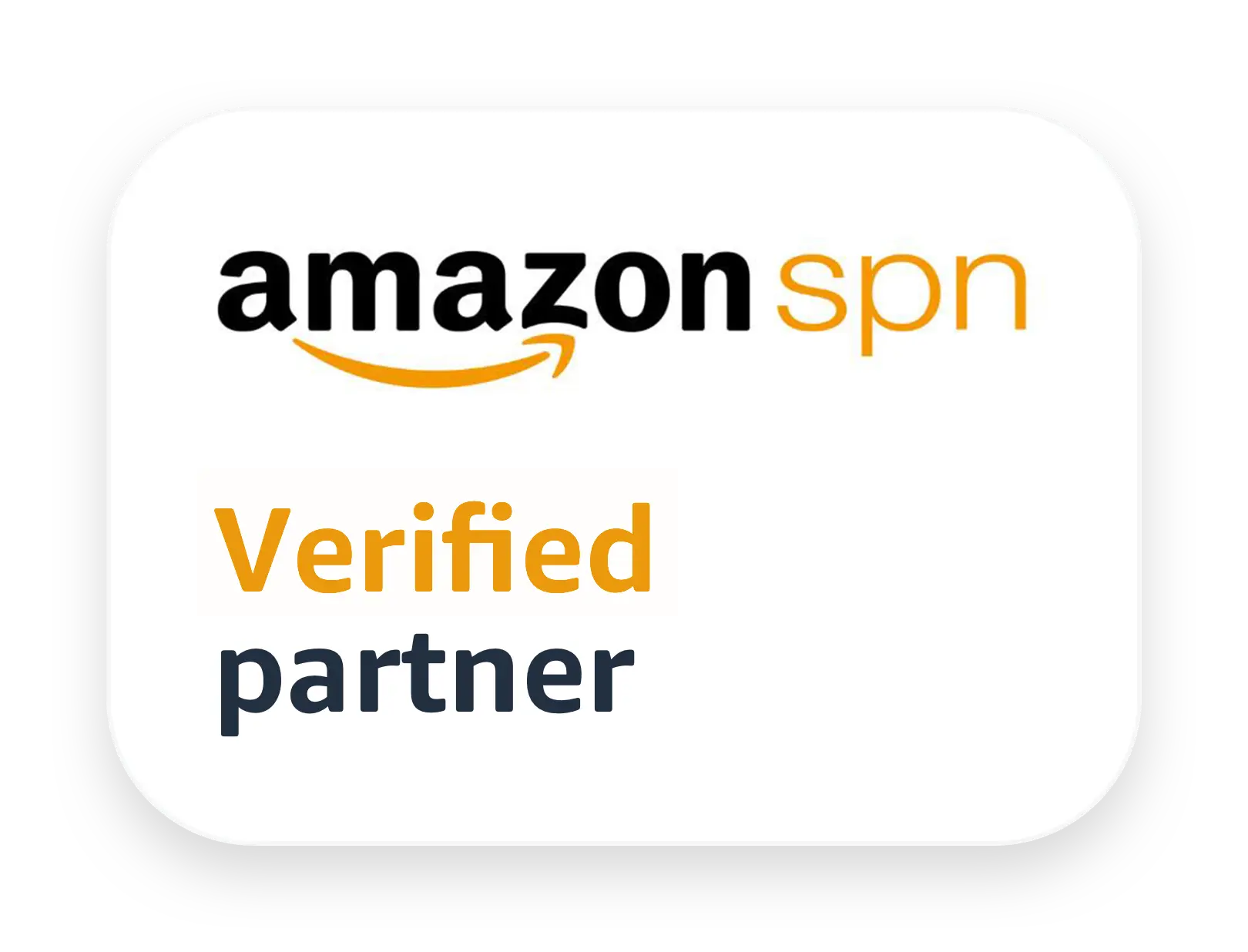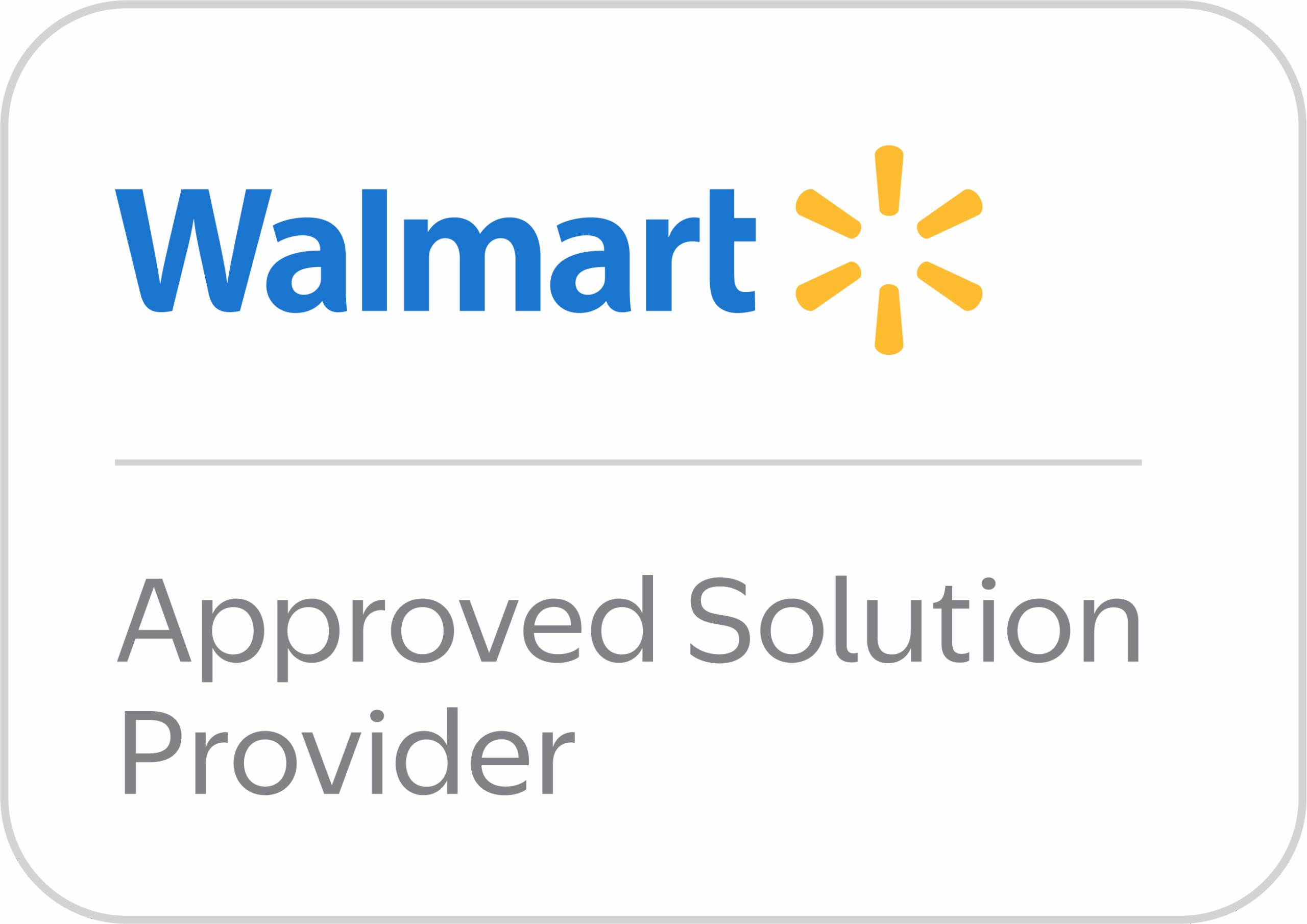Starting an Amazon business is an exciting journey. We all dream of finding that perfect product, a reliable supplier, and watching our sales soar. But before the dreams can take flight, we have to navigate the often-tricky world of product sourcing. It’s a land filled with opportunity, but also with potential pitfalls, especially for those new to the game. Scams are out there, and they can turn your business dream into a nightmare in a heartbeat.
The good news? You don’t have to be a victim. With a little bit of know-how and a healthy dose of caution, you can spot the red flags a mile away. I’m here to walk you through the essential steps to protect yourself. We’ll look at the warning signs to watch for and the smart moves to make so you can source with confidence. My goal is to equip you with the knowledge to make smart, safe decisions, so you can focus on what really matters: building a successful business.
Red Flags to Watch For Before Sourcing for Your Amazon Shop
When you’re searching for suppliers, you’ll encounter a wide range of options. Some are fantastic, but others are wolves in sheep’s clothing. Here are some of the most common red flags I’ve learned to watch out for.
Unrealistic Prices
This is probably the oldest trick in the book. If a price seems too good to be true, it almost certainly is. I’ve seen products listed at a fraction of their market value. This is a classic lure designed to get you excited and make you drop your guard. Scammers know we all love a good deal. They use incredibly low prices to create a sense of urgency and make you act quickly without thinking. Always compare prices across multiple suppliers and platforms. If one supplier is selling an item for 50 cents while everyone else is selling it for $5, you should be very, very suspicious. Don’t let your excitement override your common sense.
Poor Communication
How a supplier communicates with you can tell you a lot about them. I’ve found that a legitimate, professional supplier will respond to your messages in a timely manner. Their language will be clear and professional. On the other hand, scammers often use unprofessional language, have many spelling and grammar errors, or are just plain difficult to get a hold of. They might give you vague answers or avoid specific questions about their business and products. Trust your instincts. If the communication feels off, it probably is.
Requests for Unsecured Payment
This is a huge warning sign. Legitimate suppliers use secure, traceable payment methods. Think PayPal with goods and services protection, a wire transfer to a verified business bank account, or an escrow service like Alibaba’s Trade Assurance. I’ve been approached by suppliers who insist on being paid through Western Union or a similar untraceable method. Don’t do it. Once you send money this way, it’s gone for good. There is no way to get it back if things go wrong.
Late Changes to Payment Information
This is a particularly nasty scam. You’ve had a great conversation with a supplier, you’ve agreed on all the details, and you’re ready to pay. Then, at the very last minute, they send you an email saying, “Oh, our bank account changed. Please send the money to this new one.” Always, always verify this change. Don’t just rely on an email. Call them on the phone or reach out through another channel you’ve been using. Scammers will often hack into a legitimate supplier’s email to pull this trick. A quick call can save you thousands of dollars.
Vague or Generic Product Descriptions
Legitimate suppliers are proud of their products. They will provide detailed descriptions, high-quality photos, and even technical specifications. Be suspicious of listings with limited information, blurry pictures, or descriptions that look like they were copied and pasted from another website. If you have to ask a lot of basic questions that should have been in the listing, that’s a sign of an unprofessional or fraudulent seller. I’ve found that a good listing gives me confidence in the product before I even have to ask a question.
Brand New Suppliers with No History
We all start somewhere. But when it comes to business, it’s best to be cautious. Scammers often create new accounts to avoid the bad reviews they’ve accumulated on their old ones. Be very careful with a supplier who has no reviews, no sales history, or a very new account. If you do decide to work with a new supplier, start with a very small, low-risk order to test the waters.
Requests for Personal Information
A supplier only needs certain information to complete your order, like your name, shipping address, and payment details. They have no business asking for your Social Security number, Amazon login details, or other highly personal information. I’ve seen scams where a “supplier” asks for your Amazon Seller Central login to “verify your account.” Never, ever give this out. Amazon will never ask you for your login information via email or text.
Steps to Verify a Supplier for Sourcing Products
Spotting red flags is the first step. The next is to actively vet your potential suppliers. This is where you become the detective, doing the research to make sure your investment is safe.
Conduct Thorough Research
Before I commit to a supplier, I become a digital Sherlock Holmes. I look everywhere. A legitimate business should have a professional website with an “https” URL, a physical address, and a contact number. I also search for their company name on various sourcing platforms, forums, and review sites. What are other sellers saying about them? A few bad reviews aren’t the end of the world, but a pattern of complaints is a major red flag. For international suppliers, I even go so far as to check if their business is registered with the relevant government agency in their country. It’s an extra step, but it provides a lot of peace of mind.
Order a Sample
This is a non-negotiable step in my sourcing process. I would never place a large order without first seeing a sample. Ordering a sample allows you to inspect the product quality, the packaging, and even the supplier’s shipping reliability. It’s a small investment that can save you from a major financial loss if the product isn’t what you expected. I can’t tell you how many times a sample has revealed a product that was nothing like the pictures. It’s the best money you can spend.
Use Secure Payment Methods
Always, always use payment services with built-in fraud protection. Many platforms, like Alibaba, offer a service called Trade Assurance. This holds your payment in an escrow account until you confirm you’ve received your goods and are satisfied with their quality. It’s a safety net that protects you from being scammed. Never send money directly to a bank account without a proper contract and a high degree of trust in the supplier.
Perform a Third-Party Inspection
For larger orders, I consider a third-party inspection service. These companies send an inspector to the factory to check the quality of your goods before they are shipped. This is a critical step for preventing issues like “Chabuduo,” a Chinese term that means “close enough.” It’s when corners are cut and the final product isn’t up to standard. An inspector will check for everything from product quality to packaging accuracy. This small cost can prevent a huge headache down the line.
Check the Better Business Bureau (BBB)
If you’re dealing with a supplier in the United States or Canada, I always check their rating on the Better Business Bureau website. The BBB tracks complaints and a low rating or a number of unresolved issues is a massive red flag. It’s a simple check that provides a ton of information about the company’s history and reputation.
Conclusion
Sourcing products for Amazon can be exciting, but it’s also a field where scammers wait for the unsuspecting. The key is to stay alert, do your homework, and never rush into a deal that feels off. Remember the warning signs—unrealistic prices, poor communication, unsecured payments—and take smart steps to verify every supplier.
At the end of the day, protecting your money and reputation is more important than chasing the “cheapest” deal. Trust your instincts, invest in proper checks, and you’ll build a supply chain that’s strong, safe, and profitable.




